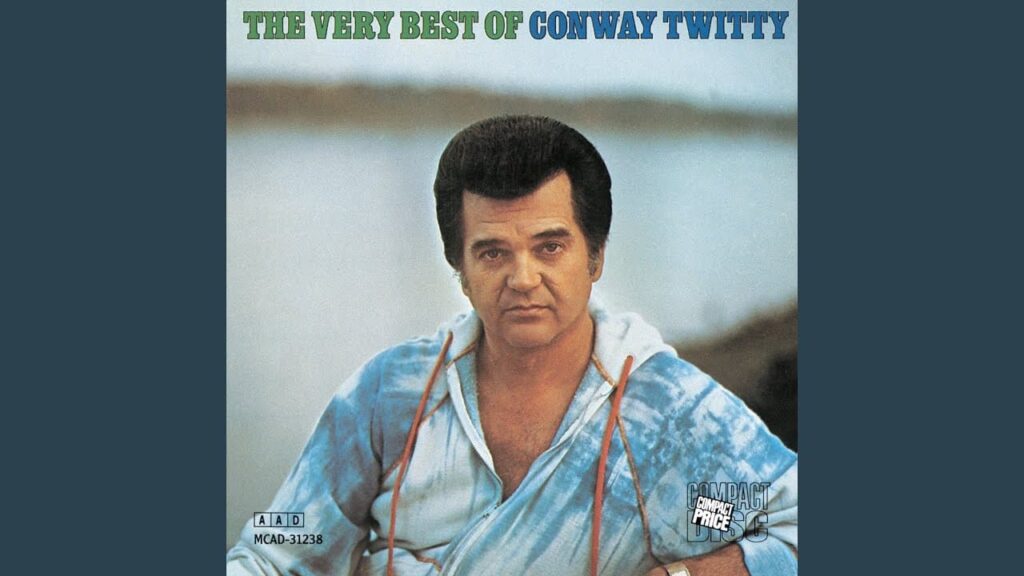
The Ache of Missed Chances: When Waiting Costs You Everything
There are certain songs, friends, that don’t just echo in the air—they live in the worn leather of our memory, hitting that bittersweet chord of “what if.” Few tracks embody that universal, aching regret quite like “Don’t Cry Joni” by the incomparable Conway Twitty. It wasn’t just a song; for those of us who came of age in the 70s, it was a miniature drama played out on the radio, a three-minute lesson in the cruelty of timing.
Released in 1975 on the B-side of the single “Touch the Hand,” “Don’t Cry Joni” quickly proved to be a rare phenomenon: a two-sided hit. While “Touch the Hand” soared to the top of the country charts, “Don’t Cry Joni” captivated listeners so completely that it clawed its way up the charts as well. It achieved an impressive No. 4 peak on the U.S. Billboard Hot Country Songs chart. Its success was even more significant in Canada, where it reached No. 2 on the country chart. More remarkably, it crossed over to the pop charts, reaching No. 63 on the Billboard Hot 100, proving its story resonated far beyond the loyal country audience.
But the story behind the recording is as touching as the lyrics themselves, adding a layer of authenticity that no session singer could replicate. The duet features Conway Twitty not with his famous partner Loretta Lynn, but with his then 16-year-old daughter, Joni Lee Jenkins. The backstory goes that after years of resisting the idea of a singing career, young Joni Lee finally expressed interest. The elder Twitty—the “High Priest of Country Music”—chose this self-penned song as an encouraging way to introduce her to the recording world. Having his own daughter sing the part of the 15-year-old girl named Joni makes the entire exchange between the characters—Jimmy and Joni—feel painfully, intimately real, like listening in on a private family conversation.
The song’s core meaning is a profound exploration of missed opportunity and the different paces at which people mature into love. It’s a two-act play told through alternating voices. In the first act, 15-year-old Joni writes a note to her 22-year-old neighbor, Jimmy, pleading, “Jimmy, please say you’ll wait for me. I’ll grow up someday you’ll see. Saving all my kisses just for you, signed with love forever true.” Jimmy, seeing only the seven-year age gap and the practicality of the moment, dismisses her, offering the heartbreakingly logical but ultimately wrong advice: “Joni, Joni please don’t cry. You’ll forget me by and by. You’re just fifteen and I’m twenty-two. And Joni, I just can’t wait for you.”
It’s an adult man’s wisdom crushing a young girl’s purest, truest impulse. But the second act provides the devastating twist. Years pass. Jimmy leaves town, tries to “settle down,” yet Joni’s simple, honest words keep “haunting” his memory. The man who couldn’t wait suddenly realizes the truth of what he let go. He rushes back, filled with a desperate hope, only to find the house next door is different. The final lines, delivered by Joni, are the punch to the gut that explains why this song stayed with us: “Jimmy, Jimmy please don’t cry. You’ll forget me by and by. It’s been five years since you’ve been gone. Jimmy, I married your best friend John.”
The raw emotion in Conway Twitty’s voice as the adult Jimmy grapples with his mistake, countered by Joni Lee’s youthful, yet firm, delivery of the final line, captures that universal moment when we realize that the life we dismissed as childish or ill-timed was, in fact, the path to our true happiness. It’s a powerful, nostalgic reminder that sometimes the heart knows what the head refuses to accept, and that the clock of opportunity waits for no one. The success of “Don’t Cry Joni” wasn’t just about a good melody; it was about the perfect articulation of life’s most painful lesson: timing is everything, and regret is a terrible thing to pack for a journey.